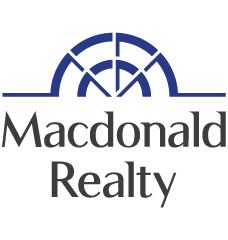Over the next decade or two, members of the silent generation and older baby boomers will be leaving their children and grandchildren $68 trillion, most of which will be in the form of homes.
More than half of all existing-homes are owned by baby boomers and the silent generation.
Heirs have several choices as to what to do with these assets. The three most common include:
- Move into the home and live in it
- Rent the home to tenants
- Sell the home
Many of our clients decide to sell the home, splitting the proceeds among the heirs.
Sounds easy, right? There is a lot to consider when deciding to sell an inherited home.
Will your pocketbook stretch?
What happens if the family member was a bit of a hoarder?
Hiring professionals required to remove all the “junk,” clean the home and perform needed upgrades is expensive.
We’ve worked with families whose bank accounts aren’t flush, in which the home sale may involve a lower asking price for the home to compensate the buyer for having to perform the removal.
Then, there may be liens on the home. Those will need to be paid off before selling the home. Your best bet is to hire a highly experienced real estate agent to help you walk through your options.
There’s often an emotional toll to pay
Cleaning out a lifetime of memories, in a home that you may have grown up in, while still grieving the loss of a parent is something nobody should have to go through.
But we do, and it can be quite emotional. Be ready for it, in yourself and other family members.
Take it a step at a time
The best first step then is to locate any paperwork having to do with the house. This includes loan paperwork, letters from the lender, tax information and deeds.
When you hire an attorney (another expense, but necessary), he or she will want to know how title was held, among other things.
Why an attorney?
Check probate rules to determine if the home will be included in the probate of the deceased’s will.
Probate is a legal proceeding that determines the legitimacy of the will or, lacking a will, identifies the deceased’s legitimate heirs (according to laws regarding inheritance).
It’s a long and often expensive process. Your Executor is responsible for gathering up your assets and distributing them according to the instructions in your Will. The Grant of Administration is a critical document that is presented to banks and other financial institutions by your Executor.
The banks can then be assured that they are giving the assets to the right person and that the Will has been accepted as the official Last Will and Testament.
Speaking of probate, if you’re facing the procedure, it’s important to get familiar with it. Don’t dispose of anything of value before probate. Anything that might be considered part of the estate must be included in probate.
We aren’t lawyers
The information we’re providing is from a layperson’s point of view. We are not lawyers and cannot dispense legal advice.
We can tell you that you’ll need professional legal and, perhaps, tax advice and assistance if you plan on selling an inherited home. If you want to know the approximate probate cost, check out the following calculator for assistance: https://www.legalwills.ca/canadian-probate-fee-calculator


 EN
EN
 FR
FR